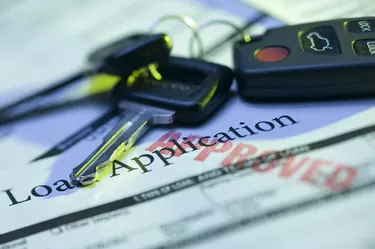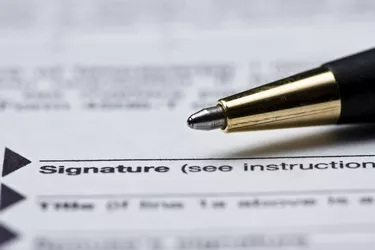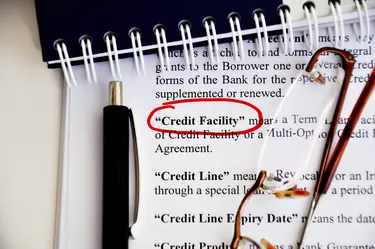
A conventional loan is any loan that is not a government loan. For example, a Federal Housing Administration (FHA) loan is a government loan and therefore not a conventional loan. A Veterans Administration (VA) loan is also a government loan. There are appraisal requirements for FHA and VA loans as well as conventional loans. Appraisals for conventional loans need to meet the lender’s guidelines.
Differentiation
Video of the Day

There are several differences in the requirements between a conventional loan and government loan. Typically, the appraisal requirements for a government loan are stricter than those for a conventional loan. For example, FHA requirements are so strict that if an appraisal does not meet standards in regards to noxious odors, environmental contaminants or any other health or safety violation, the loan will be turned down by the lender.
Video of the Day
These requirements are not necessarily standard with conventional loans.
Basic information

The basic appraisal calls for information on the property. The information needed to complete the appraisal ranges from comments by the appraiser, if applicable, legal description, sales price, square footage and price per square foot, age, condition, total rooms, date of appraised value and appraised value, among hundreds of other identifying aspects of the property. The appraiser has the opportunity to comment or rate every aspect of the home, the property and even the utilities.
Comps

It is required that the appraisal report three comps or, comparisons, to the property being appraised. A lender will not approve a conventional loan without three comps. These comps are always in the same neighborhood of the property but exactly how close in proximity depends on the lender.
"As-is" vs. "subject to"

The “as-is” box must be checked in order for a conventional appraisal to be approved by a lender. This means the property has been appraised with a market value at the current state, or as-is. The other option would be "subject to," which would mean the property would be appraised at the market value "subject to" certain repairs or improvements.
Appraised value = market value

Overall, it is the underwriter’s job to determine eligibility of the applicant for the conventional loan. In conventional loans, the main concern of the underwriter is the market value of the home. Wherein with government loans, the underwriter may be most interested in safety and environmental issues. The appraised value must be equal to the price of the home. A lender will not approve a conventional loan if the loan amount is higher than the appraised value of the home.
Issues

Sometimes a lender will demand that repairs be made before the conventional loan is approved, and occasionally the lender will allow the repairs to be made after the buyers take ownership. For example, if the appraiser finds that some electrical issues need to be tended to, the lender may not allow a close before these problems are fixed by the seller. However, if there are aesthetic issues such as a mailbox falling down or a deck that needs attention, the lender may, at the lender’s discretion, opt to approve the conventional loan and allow the buyers to make the repairs after the closing.